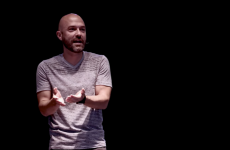
What is it about Christianity or the understanding of Christianity that people don’t like or find difficult to believe? Because when you truly understand who Jesus is, why he came to this earth, the teachings he gave to follow and the path that he made available for every person to experience eternal life, I think a better question is why wouldn’t everyone want Christianity to be true? Why wouldn’t everyone choose to follow Jesus? The reality is that many do not.
In my short 42 years of life, I’ve seen a significant cultural shift in our country in how people view Christianity. Years ago, I remember hearing people say something like, “I love Jesus, but I just don’t like the church.” I think I understood what they meant; however, Scripture tells us that the church is the bride of Christ. So that would be like someone telling me, “Matt, I love you, but I don’t like your wife.” Your love for me means nothing if you don’t like my wife. But I digress. As culture has shifted, I began to hear people say something like, “it’s fine if you believe in God, just don’t force your beliefs on me.” However, we now live in a time when there is a growing population of people who consider themselves part of the group called the “nones.” On the list of religious affiliation, they check the box that says “none.” According to a recent study released by the Pew Research Center and reported by LancasterOnline, the percentage of people in this country who self-identify as Christians stands at 65%, which is a 12% decrease since 2009. Over that same period the group of nones — atheist, agnostic or nothing in particular — has risen from 17% to 26%. What has contributed to this decline in Christianity? While there are most likely many factors, I wonder if the version of Christianity that Jesus introduced is a different version than what the “nones” have walked away from?
Maybe the version of Christianity that you understood or experienced has left you with more questions than answers. Maybe a bad church experience has left you a bit disillusioned or even hurt. Or maybe you’re questioning if God even exists because life and the world around us often just don’t make sense.



